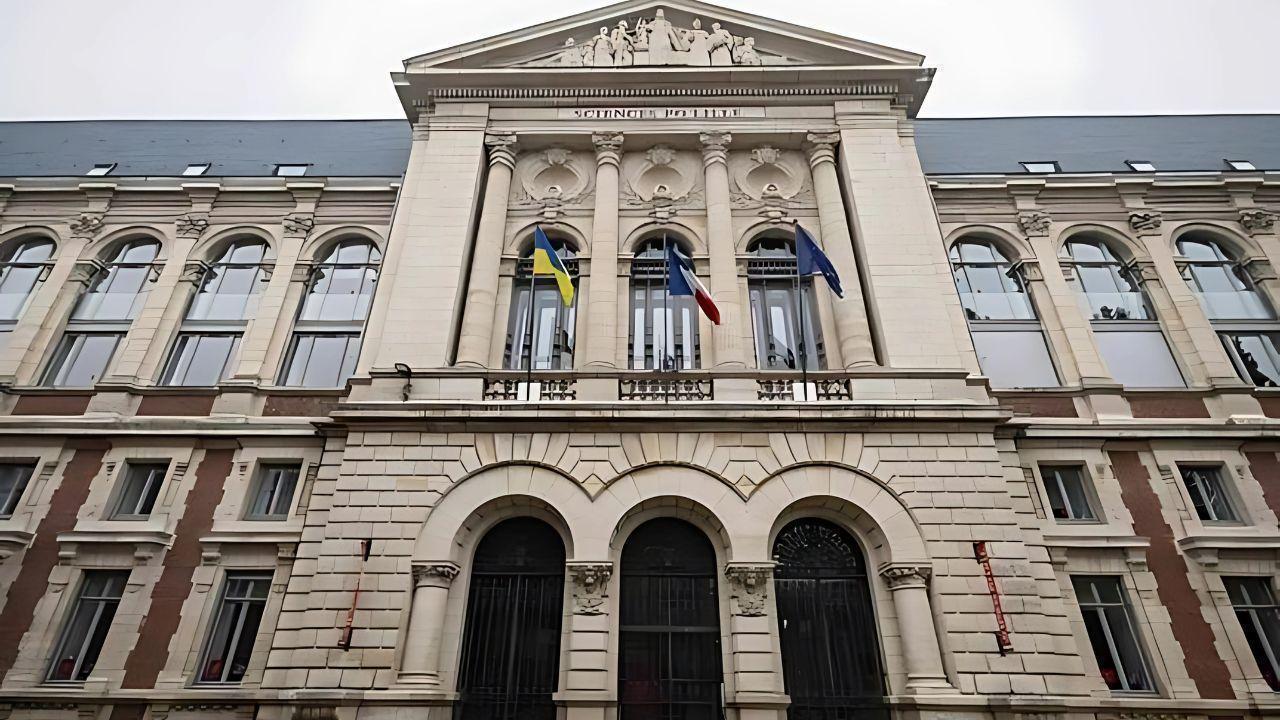
Post by : Priya
Photo:AFP
The recent decision by a leading French university to cancel the enrollment of a Gaza student has ignited intense discussions worldwide. This student’s admission was revoked due to social media posts deemed “hateful” by French authorities and the university itself. The case highlights the rising role of social media behavior in academic admissions and brings to the fore difficult questions about free speech, anti-racism policies, geopolitical sensitivities, and academic freedom.
Background and Incident
In July 2025, Sciences Po Lille, a prestigious university in France, announced it had canceled the planned registration of a 25-year-old woman from Gaza after reviewing her social media posts. French Interior Ministry officials labeled these posts as “hateful.” Although the exact content withheld by authorities, publicly circulated screenshots showed the student reposting antisemitic messages, including calls for violence against Jewish people and praise for Adolf Hitler. These revelations shocked many and elicited a strong public response.
This student had been recommended for admission by the French consulate in Jerusalem and initially housed temporarily by the university’s director. The university stated that after consultation with the French Ministries of Education and Interior, it decided to revoke the offering, citing a conflict with its core values. Sciences Po Lille emphasized its commitment to combating racism, antisemitism, discrimination, and any incitement to hatred against any group.
Official Reactions and Investigations
The rejection has provoked official scrutiny at the highest levels of the French government. Foreign Minister Jean-Noel Barrot publicly condemned the antisemitic remarks, declaring that such behavior has “no place in France,” and demanded an internal investigation of the screening process that led to the initial acceptance.
Interior Minister Bruno Retailleau called for the closure of the student’s social media accounts and legal actions against hateful speech. He asserted that “Hamas propagandists have no place in our country,” aligning the move within broader national security concerns amid heightened tensions following Israel’s ongoing operations against Hamas in Gaza.
These government reactions show the complexity of balancing security, public safety, and the protection of human rights within an academically inclusive framework.
Context: Conflict, Free Speech, and Universities
This incident is not isolated. It occurs against a backdrop of heavy geopolitical tensions between Israel and Hamas and growing scrutiny of pro-Palestinian expressions in European academic institutions. Universities, traditionally bastions of free thought and inquiry, increasingly face pressure to regulate speech that might endorse extremism or hatred.
Critics argue repression of certain political views, especially pro-Palestinian advocacy, risks undermining academic freedom. Others stress the necessity of drawing firm lines against hate speech to prevent violence and discrimination. As noted by experts and observers, European universities are caught in a difficult position, attempting to uphold open discourse while confronting global and domestic security threats.
The case brings to light how social media footprints have become critical in admissions and public life. Posts that once may have seemed distant or private now have profound real-world consequences. Universities worldwide are increasingly monitoring and acting on digital behavior in the interest of campus safety and values.
Broader Implications
The cancellation of the Gaza student’s enrollment invites much-needed public discussion about:
The Limits of Free Speech: How should universities define and enforce boundaries on speech that might incite hatred or violence without stifling legitimate political opinion or debate?
Role of Social Media in Admissions: Should students be judged partially based on online activity, and how transparent should these decisions be?
Geopolitical Tensions Impacting Academia: How can impartiality be maintained in conflict-affected regions, especially when scholarship is a vehicle for social mobility?
Government Oversight and Academic Independence: What is the appropriate role of state authorities in university admissions and campus governance in matters with security and social harmony implications?
Voices and Reactions from Different Sides
Public opinion remains divided. Some praise the university and French authorities for standing firmly against antisemitism and hate speech. They argue it sends a clear message that universities are safe spaces free from bigotry.
Others express concern about potential discrimination and the risks of censoring Palestinian voices or conflating political dissent with hatred. Advocacy organizations warn of a chilling effect on activism and dialogue in academic spheres, which historically thrive on diverse viewpoints.
French university rejects Gaza student










Alibaba Cloud Leads China’s AI Market with 36% Share
Alibaba Cloud captured over one-third of China’s AI cloud market beating rivals and investing billio

Cambodia Defends China’s Belt and Road as Economic Lifeline
Cambodia praises China’s Belt and Road projects, calling them vital for growth rejecting claims of d

Portugal Norway England shine in UEFA World Cup qualifiers
Portugal beats Hungary 3-2 Ronaldo scores Haaland shines for Norway, Kane leads England in dominant

PV Sindhu exits Hong Kong Open HS Prannoy Lakshya Sen win
PV Sindhu loses early at Hong Kong Open HS Prannoy and Lakshya Sen advance in tough battles India's

Iran Signs New Cooperation Deal with UN Nuclear Watchdog in Cairo
Iran agrees to a new framework with UN nuclear agency resuming controlled inspections after June’s c

Syrian man found guilty for deadly festival stabbing in Germany
A Syrian man inspired by IS was convicted for stabbing people at a German festival, killing three an